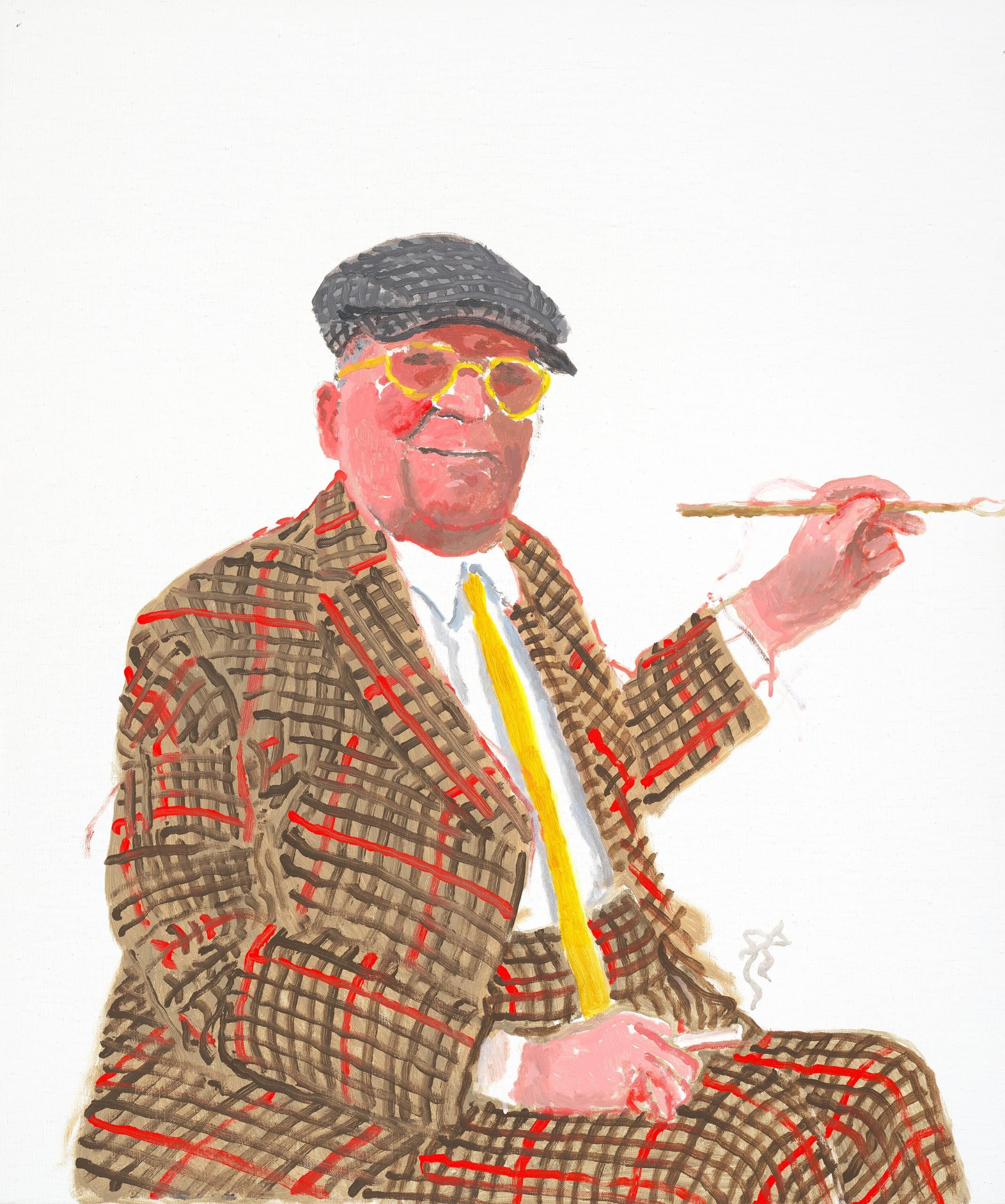
A new exhibition of works by David Hockney at the National Portrait Gallery in London has been a long time coming. When it opened in February 2020 to mixed but generally favorable reviews, it was cut short after just 20 days by the pandemic. It never had a chance to reopen before the museum closed for a mammoth $52 million renovation and rehang, which opened in June. Opening November 2 in an expanded version, the show boasts 33 new paintings produced between 2021 and 2022 at Hockney’s studio in Normandy, including one much-hyped portrayal of global superstar Harry Styles.
For Hockney, now 86, portraits have been a constant. He has returned again and again across the decades to the same subjects: himself and his friends, most notably former lover Gregory Evans; fashion designer and muse Celia Birtwell; and Maurice Payne, a printer with whom Hockney often collaborated. Far from feeling needlessly exhaustive, whole rooms dedicated to each sitter present a masterclass in all the ways that one person’s essence can be captured.
Take the artist himself. His self-portraits from the 1950s and early 1960s, when he was still at art school, evince early attempts at self-fashioning, with prominent glasses and lightly eccentric formalwear. The look, later completed with a flat cap, would become quintessentially Hockney. His always imaginative flair can be found in etchings like A Rake’s Progress (1961-1963), a humorous retelling of Hogarth’s classic tale of downfall and depravity that was partly inspired by a trip to New York where Hockney eagerly explored the gay nightlife.
David Hockney, Celia Carennac August 1971. Photo: Richard Schmidt Collection, The David Hockney Foundation, © David Hockney.
Over time, Hockney found increasingly inventive ways to depict himself, as in the case of the cartoonish Man Looking for his Glasses (1986) or Self-Portrait Using Three Mirrors (2003). Famously, in 2012, Hockney trod where few other artists had dared by making paintings on an iPad. One self-portrait is presented as a recording, revealing the digital brush strokes being made as if in real time, so we can see part of this unusual mark-making process.
Across all the works, Hockney plays with a mix of historical references. Some expressionistic or deconstructed elements are clearly borrowed from the moderns, of which he most reveres Picasso, but elsewhere a three-quarter profile, stately pose, or Rembrandtesque brown ink reveals Hockney’s admiration for Old Masters.
David Hockney, Self Portrait 26th Sept. (1983). Photo: © David Hockney.
Hockney’s interest in different stylistic approaches is clear in the contrast between Gregory Reading. Vestrefjord (2003), a colorful watercolor sketch in which the figure is loosely outlined but more detail is given over to the tablecloth, and a 1977 drawing in which Gregory’s face is almost lifelike but the rest of the image slowly melts away. Either way, we eventually get to know Hockney’s subjects. What emerges in every case is not merely how their faces change with age but how life makes these characters harden or evolve.
Though the exhibition is supposedly all about drawing, this term appears to be used more in the sense of sketching to capture a moment rather than strictly the act of putting pencil to paper. For this reason, the more recent Normandy paintings are a welcome addition. Fitting all 33 into one room allows the museum to show off its new, more stately galleries.
David Hockney, JP Gonçalves de Lima, 3rd November (2021). Photo: Jonathan Wilkinson, © David Hockney.
In these works, the wider cast of characters are, again, mostly friends and acquaintances of the artist, though notable figures (besides the obvious) include music producer Clive Davis, art dealer David Juda, writer and gallerist Jean Frémon, and writer Charlie Scheips, who appears in two portraits. There are also multiple self-portraits and images of Hockney’s partner J.P. Gonçalves de Lima. These paintings are hardly the artist’s best work—the portrait of Harry Styles has been widely acknowledged to be disappointing and most of the sitters are a slightly grotesque shade of pink, with either aggressively furrowed or aggressively shiny foreheads modeled with strips of peeking white ground—but they still never lack Hockney’s reliable character and éclat.
“David Hockney: Drawing from Life” opens tomorrow and runs through January 21, 2024.
More Trending Stories:
Four ‘Excellently Preserved’ Ancient Roman Swords Have Been Found in the Judean Desert